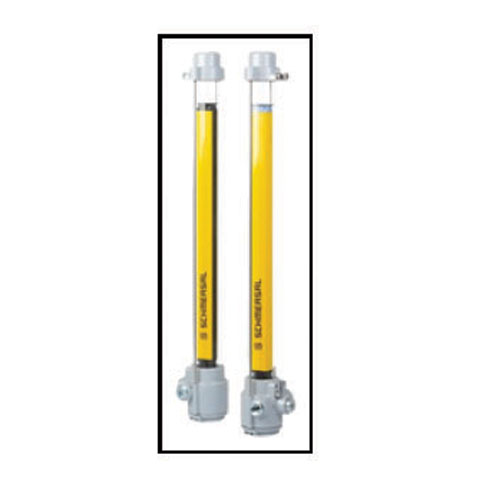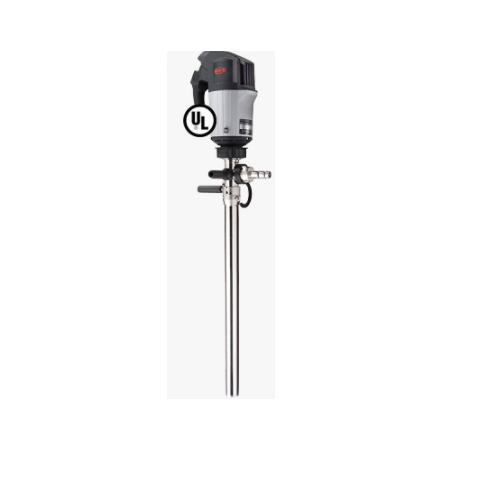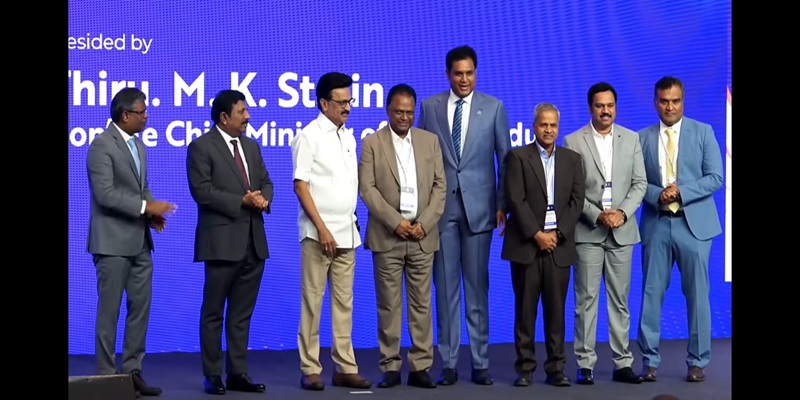Schedule a Call Back
India: All Boom, No Bust for Multinationals
 Technical Articles
Technical Articles- May 13,15
Apart from the fact that the government policies, state-wise investment campaigns and massive road shows are drawing the attention of MNCs to India, the most logical reason for global companies to set up their manufacturing facilities here is that India offers the best by way of land, operational cost-efficiency and plenty of skilled workforce.

The clarion call of 'Make in India' given by Prime Minister Narendra Modi - and one that generated so much buzz - is something that multinational companies (MNCs) had put on their priority list a long time ago. In fact, the beginning of this tidal wave that has only gained in force over the years can be traced back to 1991 when India finally decided to emerge from its closed economy status. Till then, the growth of the economy was limited, primarily because the contribution of the local industries to the country's GDP could go only to that extent and no more. In an effort to revive the industrial scenario and to bring the country back on the right track, the government began to open various sectors such as infrastructure, automobile, tourism, information technology, food and beverages, etc., to the multinational corporations. The MNCs slowly but reluctantly began to pour capital investment, technology and other valuable resources in the country, causing a surge in GDP and upliftment of the economy as a whole. Since then, MNCs have become the bedrock of India's growth story.
And now, despite the economy getting into a sluggish mode, the MNC wave hasn't shown any particular sign of losing its strength. Investments continue to be made, collaborations continue to be sought and the overall picture is one of positivity. "If you were to boil this down to a single statement of purpose, the fact that MNCs have and will continue to have India in their sights is that most manufacturing companies from across the world have a good customer base in India and it only makes sense to set up production operations here to be able to reach out to to the customers in a faster and cost-efficient manner," opines Leardo Ruggenenti, Vice President, GMP Reels India (P) Limited. The company is an Indian off-shoot of GMP Slovakia which is reputed for making reels, drums and handling equipment and it now has a huge manufacturing facility at Nashik where the company has invested about Rs 8 crore to make up to 80 per cent of its products. "We want to supply the same kind of quality that we do from our Slovakia plant and therefore this set-up in India is crucial," Ruggenenti says.

This is the kind of mission statement that you find echoed across all segments of the Indian manufacturing industry. Take the example of Walter Group, which offers machining solutions across the world. Though it has not yet set up a complete production facility in India yet, the company does manufacture some of its special solid carbide round tools locally. It also has a local reconditioning facility. "India is a growing economy with a strong manufacturing sector and a vivid home market demand for premium cutting tools. We therefore have ambitious growth plans through market share gain and distribution base expansion during the next five years," says Pawel Duzniak, President, Walter Europe & India. "We can foresee India becoming a major manufacturing economy in times to come. And Walter wants to partner Indian manufacturers in this growth; we will continue to undertake initiatives that will help Indian industries to achieve the highest standards of manufacturing efficiencies," he adds. The company has recently invested over Rs 15 crore for a technology centre to bring to India the most advanced CNC machines.
In fact, the biggest advantage that MNCs bring to Indian shores is the bouquet of latest technologies and production methods. Trade exhibitions provide proof of this desire to bring to the same table worldwide technologies and local resources in terms of land, labour and access to new markets across India and other countries in Asia. Providing an outsider's outlook on why India is among those countries that continue to be in the good books of MNCs, Gernot Ringling, managing director of Messe D?sseldorf Asia, a company that organises trade exhibitions, says, "Southeast Asia is still one of the world's fastest growing economic regions in spite of a less robust global economic climate. With the global infrastructure projects' boom in Southeast Asia, especially in India, its construction industry will expand rapidly, thus providing sustained demand for many products. The same is true for other sectors such as automotive, healthcare equipment, food processing, etc. The market surge will also be driven by efforts to promote regional economic integration that motivates ASEAN governments to actively court private investments for public-private partnership projects."

In the long run, what justifies the huge investments in plant, machinery and talent is the assurance of a growing market size. Small wonder then that a company like Grundfos Pumps India, a wholly owned subsidiary of Grundfos Holdings, manufacturers of energy-efficient pumps and providers of smart pumping solutions, carried out a 75-day nationwide campaign to showcase its products and technologies as applicable for commercial and domestic building projects.
"The market size for pumps in India is estimated to be around Rs 8,000 crore. Agriculture, rising urbanisation, infrastructure investment and industrialisation especially in water and waste water as well as oil and gas sectors are the major driving factors for the water pump industry in India. Also, with the central government's focus on various campaigns like 100 Smart Cities, Swachh Bharat and Ganga Action Plan, the outlook for this market is definitely optimistic. Renewable energy, and therefore solar pumps, will play a major role this year too," says Mahathi Parashuram, who heads the public affairs and marketing activities of the company in India.

It is this optimism that drives MNCs to be confident about their investments in India. As for instance, Lapp Group, a German manufacturer of cables that first set up a plant in Bangalore and followed it up with a larger facility in Bhopal. Now, although the company admits that targets have not been achieved for 2013-14, the plan to keep consolidating its market position and find new sectors to tap into will stick to its original intention. "We are not anticipating any significant growth in Europe due to issues related to the economy and exchange rates but Asia will be a dominant factor. For us, it is the second most important region and we are very buoyant about sales in India picking up. In fact, we have increased capacity in both our plants here and have also set up a new production line for multi-core conductor cables at Bhopal," informs Andreas Lapp, Chairman of the Board, Lapp Holding AG.
Interestingly, what also makes India an attractive destination for manufacturing is that it opens a pathway for tapping the entire Asia market. One of such success stories is that of Walson Woodburn Wire Die (P) Limited, which manufactures a wide range of dies for the wire and cable industry. It was set up as a joint venture with the US-based Woodburn Diamond Die Inc. in 1997 with a factory in Surat to supply dies to Indian clients. Subsequently, the Indian arm became an Asian hub with exports to countries like Indonesia, Malaysia, Thailand, Turkey, Japan, South Korea, and Russia. "We will continue to explore more such opportunities so that we are near to our customers and can provide better service. We are also going to expand our production capacity for ultra-fine dies for the Southeast Asia market, where we have been witnessing good feedback for our products," says the company's director, Purvesh Jariwala.
It's also sectoral growth that has a direct link to MNCs' unflagging interest in India. A prime example is of course that of the automotive industry, which has seen global giants like Daimler Benz, Volkswagen, Renault and others create huge infrastructures for rolling out their vehicles. Matching this upward spiralling trend are the global automotive component manufacturers who are now giving domestic companies a run for their money. For instance, in just over a decade of first setting foot in India, Knorr Bremse has not only established itself as a leading manufacturer of braking systems for rail and commercial vehicles but is well on its way to working on its third phase of expansion. The company forayed into Indian territory in 2003 on demand from Tata Motors. Operations began from a rented premise in 2005.
"We started with serial deliveries of air braking systems to Tata Motors and then expanded our product portfolio in the years 2006 to 2012 with the serial production of auto slack adjusters and localisation of air brake systems. We also started supplies of anti-lock braking systems and life axle controls. The year 2013 saw further consolidation and we relocated to our own plant in April 2013 which is spread over 40,000 square meters," informs Upendra Bhalavanikar, Head-Sales, Marketing & Projects. Now the company is a major supplier to such commercial vehicle OEMs as Daimler, Volvo, Mahindra & Mahindra, Ashok Leyland, and of course Tata Motors.
Similar is the path trodden by conveyance systems manufacturer ATS Conveyors India, which was set up in 2006 as a 100 per cent subsidiary of ATS Group of France and Hero Foerdertechnik of Germany. Such has been the rapid growth curve in India that the company has now shifted to a new plant at Chakan near Pune to cater to the spurt in demand. "We began with automotive OEMs as our clients but now have on our roster companies making cement as also those into the logistics space. We are growing at 15 to 20 per cent year-on-year," says Joint Managing Director and CEO Dayanand Dalvi. In the automotive space, premium audio and infotainment group Harman opened its first manufacturing plant in Pune with an investment of USD 10 million to make 4,00,000 car sets annually. The plant allows Harman to work more closely with three of its major customers, Tata Motors, Volkswagen and Fiat. "Harman's investment in this new manufacturing plant represents the potential we see in the Indian market and our long-term commitment to our local partners," says Dinesh Paliwal Harman's Chairman, President and CEO.
To draw a conclusion, India is tenth in the world in factory output and the manufacturing sector, in addition to mining, quarrying, electricity and gas, accounts for 27.6 per cent of the GDP. It employs 17 per cent of the total workforce. Now that in itself should be enough to draw the MNCs here.
Related Products

Amusement Park Equipment- White Water Ride
SICCO Engineering Works offers a amusement park equipment- white water ride.

Safe Signal Processing
Insys Electrical & Controls offers a wide range of
safe signal processing.

Nylon Coated Roller
Jekmin Industries offers a wide range of
nylon coated roller.














